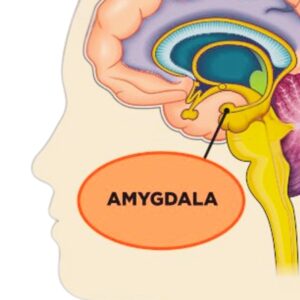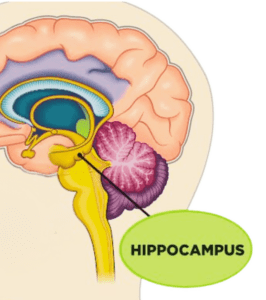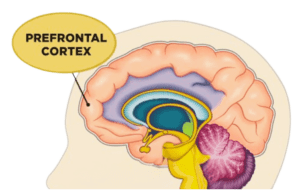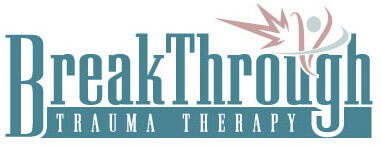Anxiety and depression are debilitating conditions that suck the joy out of living. Both mental disorders capitalize on a vicious cycle of negative thinking and emotions, which reinforce the gloom and doom outlook. The persistent negativity also breeds defeatism, self-criticism, self- doubt, low self-worth, self-hate, shame, guilt, and anger. Self-compassion can help break and ease the symptoms of self-degrading mental patterns, enabling you to take control of your thoughts and feelings.
What is Self-compassion?

● View your fallibility as a part of human nature and experience instead of isolating your predicaments.
● Awareness of your negative thoughts and emotions, rather than dismissing or suppressing them or turning them into your identity
How Does Anxiety and Depression Influence Negative Thoughts and Emotions?
Both anxiety and depression are negative moods sustained by the stress response pathway in the brain. Adrenaline and cortisol are the two stress hormones that mediate this pathway. They activate and maintain the anxious state, also known as the fight-or-flight response.
Your brain rewires itself into survival mode when in the anxious state. The mind falls into destructive thought patterns and emotions, consequently affecting behavior when in this state. Several regions coordinate to maintain the new anxiety networks.
The Amygdala
 The amygdala is the brain’s stress response center. It picks stress signals and processes and contextualizes them before transmitting them to the hippocampus. In an anxious or depressive state, the amygdala is hypersensitive to both internal and external cues. It can even pick phantom cues, mark them as stressors, and initiate the stress response.
The amygdala is the brain’s stress response center. It picks stress signals and processes and contextualizes them before transmitting them to the hippocampus. In an anxious or depressive state, the amygdala is hypersensitive to both internal and external cues. It can even pick phantom cues, mark them as stressors, and initiate the stress response.
The Hippocampus
 The hippocampus forms and stores short-term and long-term emotional memories. Once the hippocampus receives information from the amygdala, it adds context to the memory through a process known as encoding. Context includes cues like sight, sounds, touch, taste, or smell.
The hippocampus forms and stores short-term and long-term emotional memories. Once the hippocampus receives information from the amygdala, it adds context to the memory through a process known as encoding. Context includes cues like sight, sounds, touch, taste, or smell.
The hippocampus also transforms short-term memory into long-term memory. The process is known as consolidation. The hippocampus retrieves this memory every time the amygdala activates the stress response while presenting cues concerning the memory.
The Prefrontal Cortex
 The prefrontal cortex is the emotional memory processing center. It tags memories as good or bad. It also evokes an emotional response relating to the retrieved memory from the hippocampus.
The prefrontal cortex is the emotional memory processing center. It tags memories as good or bad. It also evokes an emotional response relating to the retrieved memory from the hippocampus.
The Downward Spiral
Unfortunately, the stress response impedes reasoning, logical thought, and emotional processing. The prefrontal cortex releases an avalanche of emotions that cloud your judgment. It also sets off an uncontrollable stream of negative thoughts. Negative thoughts and emotions stimulate the amygdala, creating a vicious cycle of negativity while reinforcing the stress response pathway.
How Does Self-compassion Heal Anxiety and Depression?
Stress Response Suppression
Self-compassion activates the reward pathway, which inhibits the stress response. Dopamine, serotonin, and other feel-good molecules activate and sustain the reward pathway. This neuron circuit enhances calmness, motivation, satisfaction, and happiness. It reduces the premature urgentness and despair induced by the stress response.
The encouragement and self-assurance add fuel to determination. It pushes you to try again or take a leap of faith. The resulting courage is what keeps you fighting until you accomplish the goal.
Mindful Awareness
The prevalent negative thoughts and emotions in a depressive or anxious state are often illogical. They are an extrapolation of your worries, fears, and past experiences. An awareness
of this can help you remain factual and optimistic amid the turmoil.
You do not know the outcome of your present circumstances. Opportunities can come out of setbacks. Failure can be a redirection into something fruitful. You also came out more knowledgeable from the experience.
Opportunities to Learn and Grow
You never truly grasp the extent of your resilience until being strong is your only option. Self- compassion provides the motivation and drive to persevere through hard times. It is the fuel that
gets you through hell.
Self-compassion helps you learn your strengths and weaknesses. It provides opportunities to understand your thoughts and emotions, find solutions or alternatives, or adapt to the new normal without losing yourself. The resulting turmoil disrupts inner peace, heightens hypervigilance, and stifles rational decision-making.
Boosts Thought and Emotional Rationalization
Anxiety and depression interfere with the mind’s ability to question the authenticity of fears and worries. The mind becomes a slave to a negative outlook. The overwhelming feeling of defeat can affect even your will to perform activities of daily living like grooming.
Self-compassion is the antidote against rumination. It illuminates the fault in your thoughts and emotional patterns. As you carefully unpack the negative cycle and understand your thought process, it becomes easy to fact-check and healthily contextualize your feelings and thinking patterns.
Builds A Healthy Positive Outlook
It is easy to beat yourself down when you fail. Feelings of inadequacy are more frequent in humans than competence. Everyone is fighting something, from battling the imposter syndrome to achievement phobia and chasing perfectionism.
Self-compassion sets a realistic outlook. Everyone is trying their best with the resources at hand. There is no one-size-fits-all in success. Everybody has their path and timelines. Focus on yours and avoid comparison. It will rob you of any joy in your journey.
Learn to celebrate every milestone. The beauty of living is in the process, not the destination. Therefore, go placidity. Be your authentic self. Remember, it does not always rain. The sun eventually comes out.
Contact Us
